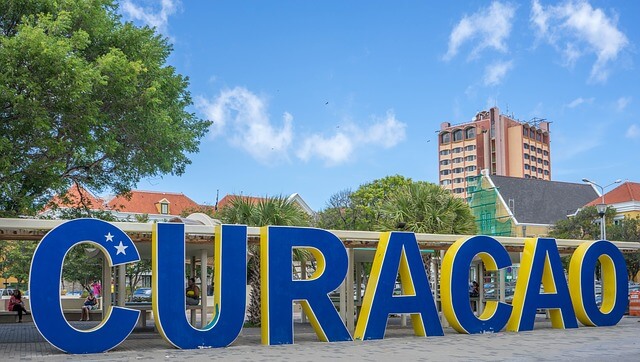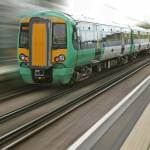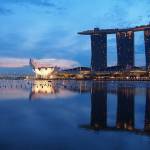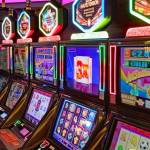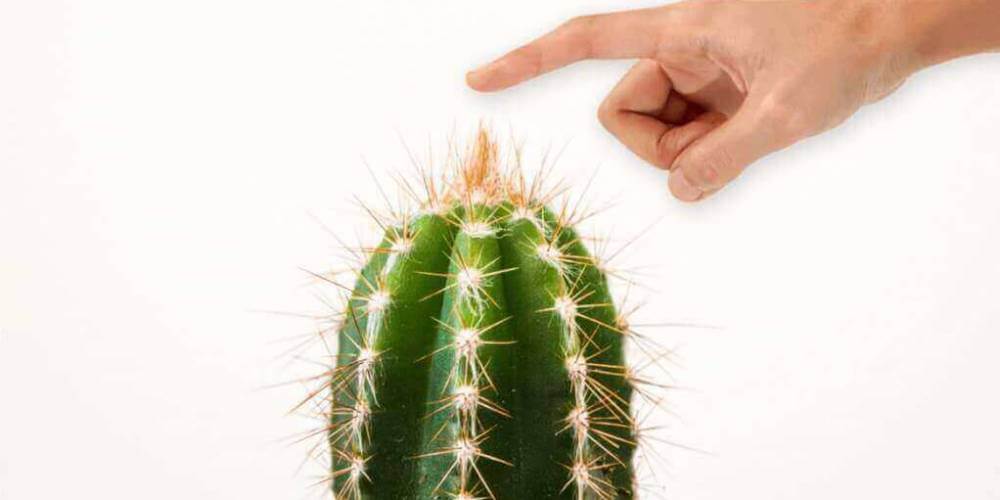We’ll start this week’s recap with some bad news – coronavirus might be back in Las Vegas. Nevada Governor has urged Nevadans to stay home over the next two weeks.
Something similar happened in New York and New Jersey, where casinos will have to suspend indoor food and beverage service.
With the COVID-19 pandemic raging on, Americans are switching their focus to online gaming sites. The bad news is that, at the moment of writing, there are hundreds of shady online casinos, many of which have ended up on the MobileCasinoParty blacklist.
The good news is that from 2021, getting an operating license will not be as easy as before, with Curacao planning to tighten its regulations.
Curacao To Tighten Its Online Gaming Laws
Most people would have trouble finding Curacao on a map, but in the online gaming industry, this small island is a crucial player. The reason is that there are many online casinos with an international operating license issued by its government.
In fact, a significant percentage of offshore gaming sites that cater to the American audience carry licenses issued in Curacao.
What attracts casino owners to set sails for Curacao (figuratively speaking, as they don’t have to visit the island to get a gaming license) is the 2% flat tax on income. In comparison, online casinos licensed in New Jersey have to pay 15% of their total internet gaming revenue.
Another reason why online casino owners love Curacao is that getting the license is not that hard. In America, you’d have to go through various audits before even being able to apply for an operating license. In Curacao, everything can be done in a few days.
As it’s possible to get a Curacao gaming license without spending too much time and money, the island has caught the eye of some pretty shady operators.
Although the license agreement prevents casinos from taking the money and running away, shady operators have still managed to find ways to get the better of their users. For example, there are some reports of online casinos charging extremely high processing fees on withdrawals.
However, all the shady activities are going to come to an end in 2021. The Government of Curacao has accepted a “liquidity support” deal from the Netherlands. It comes with an important caveat – the island country needs to “financial and economic crime.”
No More Sub-Licensing In Curacao
According to the deal Curacao has signed with the Netherlands, the island country would receive a pandemic bailout only if it agrees to certain conditions. Among those is the one regarding the so-called sub-licenses.
If you’re not familiar with the term, sub-licenses are operating license issued by private agencies rather than the Government of Curacao. With a sub-license, a casino operator gets all the perks of a regular license, without having to wait for too long.
Plus, in many cases, the licensing agencies tend not to carry out too deep checks, meaning that shady operators often get a pass.
Those practices, however, will end soon. Starting from March 1, 2021, Curacao will no longer allow independent agencies to issue gaming licenses.
This will prevent an en-masse issuing of international gaming licenses, something which thousands of online casinos have received so for. In turn, the online casino landscape will observe some big changes, with only the best operators getting licensed.
Nevada Governor Unveils His “Stay at Home Pt.2” Plan
The COVID-19 pandemic is back in Nevada. The number of people testing positive for the coronavirus is growing all the time. A week ago, it reached its peak, with 2,068 new cases.
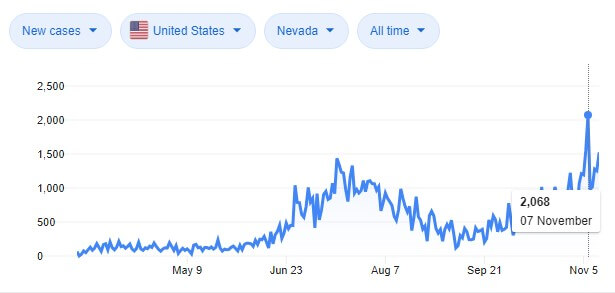
The area most affected by the outbreak is Clark County, which is where Las Vegas is situated. With nearly 11,000 new cases over the previous two weeks, Sin City is sort of a COVID-19 hotspot.
Still, Nevada Governor Steve Sisolak has no plans of shutting down Las Vegas casinos. While he did call for Nevadans to stay home over the next two weeks, he also called visitors to come to Las Vegas casinos.
“They certainly should come because they are protecting your jobs.”
Sisolak’s new plan for combating the outbreak while preserving the local economy involves imposing stricter measures in venues around Las Vegas.
According to Governor, casinos and hospitality businesses will experience increased scrutiny over the next 14 days, all in order to maintain the existing social distancing practices.
No new restrictions will come in force, including those related to the number of people allowed indoors. Actually, it’s just the opposite. Sisolak hopes that the new plan will pave the way to increasing the venue capacity from 25% to 50% by the end of the year.
Las Vegas Strip Casinos Decide on Midweek Closures
Despite Sisolak’s plea for people to go to casinos, big venues on the Strip keep experiencing low demand. As a result, many casinos have decided to go with temporary midweek closures.
The first casino to do it was Encore at Wynn Las Vegas. The casino is closed from Monday noon to Thursday 2 pm every week.
Two Caesars Entertainment properties The LINQ Hotel and Experience and Planet Hollywood Resort and Casino are also working weekends-only.
The recently-reopened Park MGM has been in the same mode since November 9. As a reminder, the casino reopened on September 30 as the only non-smoking casino on the Strip.
However, due to low demand, the casino management decided to keep it closed midweek.
Restrictions are Back in New York and New Jersey Casinos
Bars and restaurants at casinos in New York State and New Jersey are required to stay closed from 10 pm to 5 am. These are the measures recently announced by the governors of New York and New Jersey, Andrew Cuomo and Phil Murphy.
Another restriction that casinos in these two states will see is bar-side seating. Casino patrons will not be allowed to hang around in bars and restaurants on the premises during nighttime.
Outdoor dining may continue in Atlantic City, including delivery services to the casinos. According to New Jersey Governor, the reason behind these decisions is to combat “pandemic fatigue” that’s caused people to forget about social distancing rules.
Over in Philadelphia, there are no new measures that would affect land-based casinos. However, the news from the Keystone State is that about 1% of casino employees have contracted COVID-19 since the casinos returned to business in June.
There are 12 brick-and-mortar casinos in Pennsylvania, which employ a total of more than 10,000 workers. According to the Pennsylvania Gaming Board, 108 casino workers have tested positive for the coronavirus.
The number may seem big but is actually considerably lower than the state average. According to Rivers Casino spokesperson Jack Horner, the reason is their dedication to “maintaining a safe and healthy workplace.”


